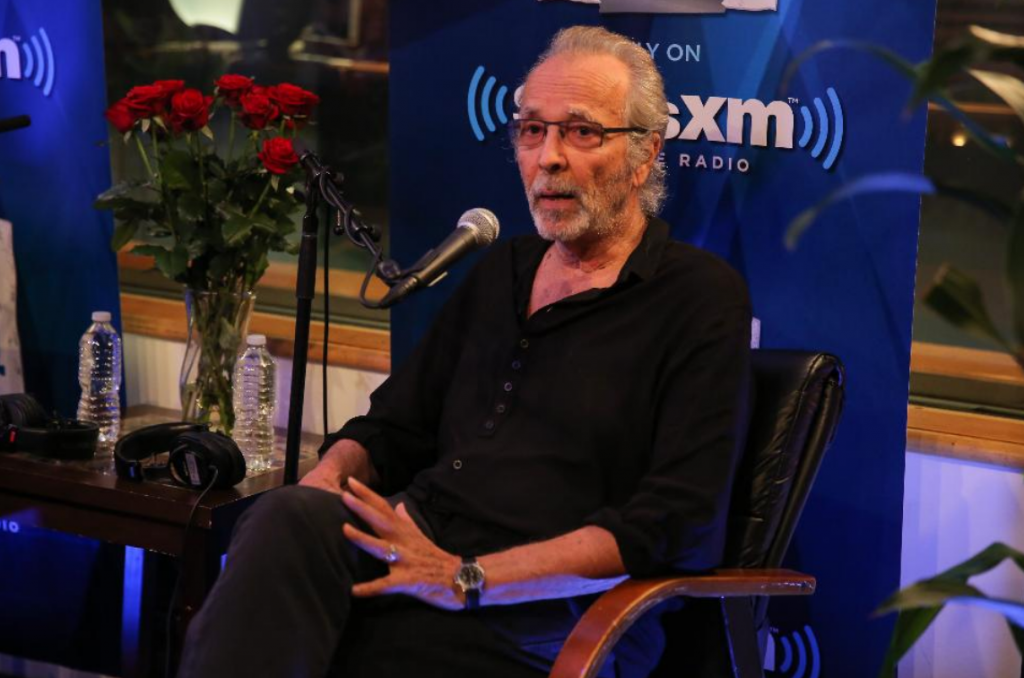Alpert: The key to giving money away is to be organized and to have good people around me. That’s what I do. I’m a right brain guy. I live in the right side of my brain for probably 85% of my life. I paint, I sculpt, I make music. The business side of me is a little light, but I’m really good at keeping people around me that are really good at doing things that I necessarily don’t really want to do or are probably not very good at doing. I have a wonderful lady who runs the Herb Alpert Foundation. I send her little emails or notes now and then, and she’s able to decode those notes and make sense out of them, and we begin running with ideas.
McIntyre: What does a year look like for the Foundation other than making these big announcements?
Alpert: We’re supporting or helping to support probably close to 90 little organizations around. We have a small staff of people that keep in touch with all of these organizations. Some are bigger than others, like the Harlem school that I got involved with several years back. The school was about ready to close for whatever reason, and I couldn’t believe that people on the East Coast didn’t come to the party, but it just felt like the right fit for me. When I think of Harlem, I not only think of the obvious, of Duke Ellington and Louis Armstrong and all the great artists that came out of there, but of the tremendous history of that community. I felt that I wanted to be a part of keeping that school alive. It’s now thriving and serving thousands of kids.
McIntyre: You say you’re not particularly business-minded, but you’re in the middle of reissuing many of your albums.
Alpert: Right, about two dozen. My nephew Randy is my manager and runs the record end of me. We noticed on Amazon and some of the other companies, they were selling bootleg albums of mine for like $125, $140 apiece. I said, “Hey, that’s not fair! Let’s reissue these albums and make them available for $9.99,” and that’s what’s happening. They’re being released around the world, and I’m getting tremendous feedback from it. I didn’t realize how many people were so excited about getting some of these albums that they hadn’t seen for years because they were not available. There are some vinyl, but they are mainly CDs. I think there are four or five on vinyl as well.
McIntyre: What kind of an undertaking was that to reissue them? Twenty four albums is a lot to have made.
Alpert: The albums were already made. They’ve been repackaged and remastered, but for the most part, the albums were already there. I didn’t add anything to them. They’re in their original form. We went back into the tapes and when we could improve on them sonically we would do that, but other than that, it was all pretty much there. I guess we’ve been working on it for a couple of years, though. We wanted to do it right. My premise has always been that I don’t want to take advantage of anyone. When they got one of our products at A&M, I wanted it to be the best quality possible. Shortly after we started A&M, we hired a man who was just quality control, making sure that all the product coming out of A&M Records was top quality. I’ve always had that in mind. For me it’s not about how much money can I make, it’s about how can I do something that’s really worthwhile and honest.
Alpert: I don’t call it an experiment, I just hear that if there’s a song I’m going to do that’s recognizable to others, I try to do it in a way that hasn’t been done like that before. Lots of people will experience these songs that they’ve never really recognized. That’s just a fun pursuit of mine. I don’t think about electronics or any other thing. When there’s an interesting rhythm or sound that appeals to me, I just try to put my trumpet over it and see if it makes sense. I’m not thinking about how I can be contemporary or be in competition with what’s happening on the radio. Radio hardly exists anymore in terms of helping the artists. I just try to do nice things that give me pleasure.
McIntyre: This is album No. 42, and you’ve done a couple in the last few years. What makes you want to continue to release and record new music at this pace?
Alpert: No. 42 is a lucky number! That was the late, great Jackie Robinson’s number. This is what I do. I started playing the trumpet when I was eight, and it has been a great friend of mine. I love the experience. I’ve got a recording setup at my studio at home. I love the process. I love to try and make music that makes me feel good, and I feel that if it’s fun for me to play, it’s going to be fun for a certain amount of people to listen to. That’s what I like to do. I’m not thinking about trying to recreate my moment in the sun, I’m just doing what I love to do.
McIntyre: We can’t ever expect there to be no more music because you’re going to keep making then?
Alpert: Well, you know what, when I’m 1,600 there will be no more music. Until then, this is what keeps me alive. I wake up in the morning thinking about music, thinking about painting, thinking about sculpting. I wish everyone could have that experience, of being able to wake up in the morning excited about how they’re going to spend their day.

